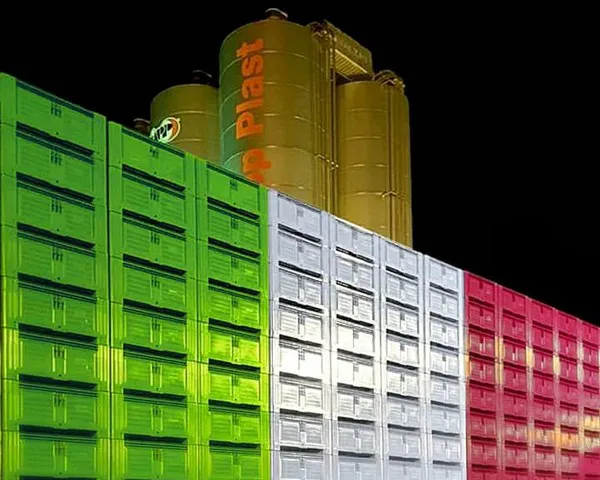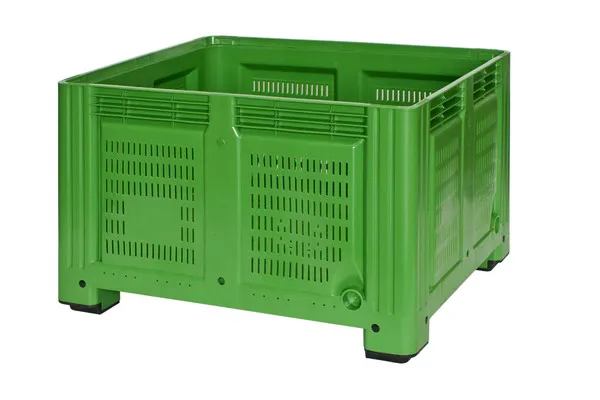Dutch and Belgian fruit growers are preparing for the approaching apple and pear harvests. In June, they must get everything ready to receive the latest crops. For example, which crates must be replaced? They usually choose wooden crates, but plastic boxes are fast gaining ground.
 Capp Plast, an Italian company, has a production site in Helmond, the Netherlands, for the Northern European market.
Capp Plast, an Italian company, has a production site in Helmond, the Netherlands, for the Northern European market.
The current corona crisis also indirectly benefits plastic container prices. This is according to Gerald Langerak of Capp Plast. "The oil price is lower now. So, the price for our raw material, plastic granulate, has decreased too. We are, therefore, adjusting our clients' quotes. If the price to fabricate plastic at our Dutch production location drops, we think our clients should also profit from that," says Gerald.
"In this way, we can lower prices." Gerald explains why these boxes have a price advantage, but plastic packaging does not. "Crates, containers, and boxes weigh more per unit than thin film. That makes a difference to the price. Fruit prices are on the rise this year again. That contrasts the crates' lower prices."
Gerald adds that the plastic boxes' price offers additional benefits. "Contrary to what many people think, plastic is far more sustainable than wood. It lasts longer and is completely recyclable. There are governmental initiatives such as the Environmental Investment Deduction and Random Depreciation of Environmental Investments. These offer attractive tax advantages aimed at stimulating purchasing such boxes."
 One of the Capp Plast crates benefits is its improved regulation of top fruit's moisture management.
One of the Capp Plast crates benefits is its improved regulation of top fruit's moisture management.
Gerald sees that especially pear farmers are now switching to plastic containers. "That is because these boxes have another benefit. They manage moisture. After all, plastic absorbs no moisture at all. These perforated crates, therefore, better regulate moisture management. That is slightly more important with, in particular, pears than apples. The sides are perforated so temperatures can be more swiftly regulated."
"The pear market's growth also contributes to these cultivation companies increased plastic box use. Plastic containers not only offer better regulation. They are easier to clean and use and weigh less too. We can, for example, place legs or sleds on their underside, if required. You can also just leave the empty crates outside. Plastic might cost a little more, but cheap eventually becomes expensive. Especially considering these boxes' advantages," Gerald concludes.
For more information: Gerald Langerak
Gerald Langerak
Capp plast Nederland BV
Tel: +31 (0) 226 411 623
Mob: +31 (0) 651 914 888
Website: www.geraldgreensupport.nl
Email: info@geraldgreensupport.nl
